RusTrans PhD student, Sarah Gear, spent two days online-conferencing at University College Cork this week, the theme being ‘Reading in Translation’. The questions which this event answered (and created!) proved relevant not just to readers and translators of Russian literature, but readers of any age and any language… Read on to find out what she discovered…
On Monday 17 May, Jennifer Arnold opened Reading In Translation: Approaches to the Study of the Reception of Translated Literature by posing the question ‘who is this reader that everyone seems to be basing translation and publishing decisions on?’ Over the next two days, speakers provided a wide variety of answers as we heard from researchers, bloggers, publishers and translators themselves. It became clear both from these presentations, and through the questions and conversations at the end of each session, that readers of translations are far from a static end-point of the translation process, but an integral part of the dynamic exchange between author, text, translator, critic, blogger, publisher, source and target cultures – not to mention between readers themselves. Indeed, reading communities, whether they are formed through schools, book groups, blogs or social media, were a recurring theme, reinforced by the virtual coming together of so many delegates, all readers of course themselves, for this fascinating exploration of translation reception.
Keynote speaker Leo Tak-Hung Chan addressed the search for the identity of this real reader at the end of the first day, in his talk Rediscovering the “Real” Reader of Translations: From Historical to Empiricist Approaches. Dr. Chan talked about the methodological challenges in charting reader response to texts, and considered the use of microhistories, ethnographic studies, and research on book groups, quoting a wide range of sources, and looking outside of Translation Studies for inspiration. Dr. Chan pointed out that translators are often seen as the closest readers of a translated text, and so it was interesting to hear from translators Anton Hur, Daniel Hahn, and Gitanjali Patel in the evening panel later that same day. All three spoke about their reading habits, and how this informed their work. Daniel Hahn made the interesting point that “We keep translating literary fiction. Most of the time it doesn’t sell well, and that serves us right“, which begs the question of what we should translate, and what publishers could do differently. This question linked in part to my own paper What do We Want to Read? Adventures in Contemporary Russian Fiction, where I talked about the low sales of contemporary Russian literature in translation, and the number of novels translated by the Big Five that fall into the trap of being overtly political, or portraying Russia as ‘bad’ – a trend that has not agreed with the tastes of the online Contemporary Russian Reading Group which I run using Discord (get in touch with me if you’d like to join).
Communal reading and reader reception was discussed in the panel, Researching Reading Groups: A Methodological Approach by Duygu Tekgül-Akin, who talked about her fascinating work with UK book groups, providing some touching insights into British reading culture. Jennifer Arnold talked about her own work in Cork with library-based reading groups, and the effects of selecting translated literature tailored to particular communities – she noted the positive effects of choosing a translation from Polish for a community that had a large number of Polish members. Bethan Benwell also shared experiences of her book-group research, where she tracked the reading of three different Anglophone books across the world, recording the responses of book groups to what she termed ‘diasporic fiction’ and evaluating them in consideration of their locations, taking into account the ‘situated’ nature of their responses.
The theme of communal reading was reprised in the second keynote talk, Book Events, Babbling Beasts and Bestsellers: Researching Shared Reading where Danielle Fuller spoke about ‘mass reading events’. She highlighted the One Book One Community project that she witnessed being run in Chicago, and described the enthusiasm of a teenage book group when the whole city was invited to read Pride and Prejudice. Her discussion of the importance of reading in school communities also underscored the power that literature has to challenge and stimulate young people. This was also a topic highlighted by Gitanjali Patel, who runs Shadow Heroes, a school-based programme of workshops led by translators, which encourages teens to interpret texts not based on the responses they think they are supposed to produce, but on their own reactions as readers.
This idea of reader as collaborator, and ultimately as the ‘producer of meaning’, was beautifully illustrated by Helena Buffery’s discussion of theatre translation, Reading The Future: Rehearsed Readings and Border Crossings. She described the way in which she approached the translation of a script by workshopping it with actors and translation students, using actors’ own experiences to create a ‘collaborative meaning-making process’ and noted that translation problems resolved themselves when they were read by actors, who brought their own meaning to the text.
In contrast to these considerations of group reading responses, Callum Walker gave a fascinating talk, Idiosyncrasies and Commonalities in the Reading Experience of Salient Style: Insights from an Eye-tracking Experiment, about tracking eye movements of individual readers in order to assess the effects of translation decisions on the reading experience – in this case three versions of Queneau’s Zazie dans le Métro. It was fascinating to hear about the link between text complexity and eye movement, and about the variation of response between different readers.
Translation decisions were measured on individuals in a very different way by Katinka Zeven and Lettie Dorst, who presented their work, Daisy Buchanan in Retranslation: Characterization and Reader Reception, on translations of The Great Gatsby, comparing two translations from Dutch written 40 years apart, and asking their readers for their impressions of central female character Daisy Buchanan. They pointed out that just as society changes, so do the novels’ readers; this enabled them to consider the effect of translation strategies on readers’ opinions of Daisy in a study that was temporal rather than cultural. They discussed the effects of retranslations and the difficulties of creating unbiased reader surveys along the way.
With her paper Disoriental: Translation and Reception through the Prism of the Paratexts, Clíona Ní Ríodáin continued to consider the effects of translation strategies on the reader with a discussion of Désorientale by Négar Djavadi, and its translation from the French by Tina Kover. As with the previous talk about The Great Gatsby, Clíona considered paratextual elements and their effect on the reader and reception of the book, and this provoked a lovely discussion with Tina Kover who was attending, about the use and effectiveness of footnotes, italicisation of foreign words, and how this was tied to her understanding about how much ‘hand-holding’ the readers of her translation might need.
The response of reviewers as readers was considered by the next couple of speakers. Malin Podlevskikh Carlström, with her talk Receiving the Intertextual: The Reception of Tatyana Tolstaya’s Kys’ in Sweden and the United States, discussed the critical responses to translations from Russian into both English and Swedish of Tatiana Tolstaya’s The Slynx. She explained how the domestication of major intertextual elements of the Russian text in the Swedish translation affected the nature of the reviews it received. Following this, Tiffane Levick, with her paper Fact or Fiction? Reading and Receiving Life on the Fringes, talked about the presentation of authors themselves, discussing the translation of Faïza Guène’s Kiffe kiffe demain in both American and British editions, and explaining that the presentation of Guène as peripheral, stressing her Algerian parents, and placing emphasis on the fact that she was from the banlieue of Paris, influenced the way her novels were presented in translation, ultimately encouraging both textual and paratextual foreignizing strategies.
This idea of manipulating literature via translation to conform to national stereotypes was taken up in different ways by Marjorie Huet-Martin and Owen Harrington Fernández. Marjorie, in her paper Translating for ‘Cultural Outsider Readers’: the Case of Ian Rankin’s Rebus Novels, discussed the ways in which Scottish culture was brought over into French in translations of Ian Rankin’s Rebus novels, provoking the conference’s first footnote conversation. Owen, with his talk Censored Interactions in Translation: A Model, discussed the sanitising of translated literature for children, using the example of Elvira Lindo’s Manolito Gafotas, translated from the Spanish, and considering how it was made more acceptable to an Anglophone audience.
As a counterpoint to the search for a definition of the reader of translations, Laura Linares pointed out in her paper, Who Reads the Periphery, that finding readers is not always the main aim of a novel in translation. Describing the scenario of supply-driven translation of Galician fiction, she talked about the revolution of print on demand, and the efforts of independent Small Stations Press to translate and publish Galician literature. Laura explained that their main initial concern was often not to find an actual reader per se, but to legitimise the Galician language and culture through the sheer fact of Galician novels existing in English.
The conversation titled Reading Outside Your Comfort Zone between Helena Buffery, Ann Morgan and Helen Vasallo was an inspiring one about reading from different cultures. Through their blogs, Ann’s A Year of Reading the World and Helen’s Translating Women, Helen and Ann talked about the enthusiasm of other readers, writers, and translators for the projects, and the pure curiosity that drives them. Both women saw their projects as a way to push back against what Helen called the ‘eurocentrality of translated literature’ which is obsessed, she said, with the ‘cult of the familiar’; Ann agreed, citing what she termed the ‘genrefication of national literatures’ as a major obstacle to discovering new and innovative voices from across the world. From this conversation, it became obvious that readers, whoever they are, are not a passive audience, but a dynamic community that can effect change by reading more widely, and demanding more diverse books from publishers.
This theme was nicely echoed by a roundtable titled Blogging the World, chaired by Jennifer Arnold, with book bloggers Stuart Allen (Winston’s Dad), David Hebblethwaite (David’s Book World) and Marcia Jarnell (Lizzy’s Literary Life), who talked about their reading habits, and the reasons behind their decisions to read and blog about more translated literature. Among many other subjects, they talked about being part of the International Booker shadow jury, and the act of collecting books vs. reading them (something I am also definitely guilty of) and of simply being guided by what interests them when it comes to selecting books, rather than specifically seeking out either translated, or non-translated titles.
Tying all of this together, the final discussion, The Publisher and the Reader, heard from independent publishers Tice Cin from Tilted Axis, Maddie Rogers at Peirene Press and Emma Wright at The Emma Press. These three women provided a fascinating insight into how publishers take their readers into account, and the motivation behind their publishing decisions. Reprising the subject of community reading, Maddie spoke about the Borderless Book Club she runs, and its success over the past year, as well as its importance as a model and route to interest more and more people in literary translation.
Growing from this dynamic, wide-ranging, and thoughtfully organised two-day forum was a renewed understanding of the varied and complex nature of readerships, and of the dynamic role readers can and should play in the reception of translated literature. As Jennifer Arnold stated in her closing comments, hopefully this conference, and the conversation it has started, will act as a springboard for sharing more information and research about reader reception of translation, and pave the way for more research in this fascinating area.
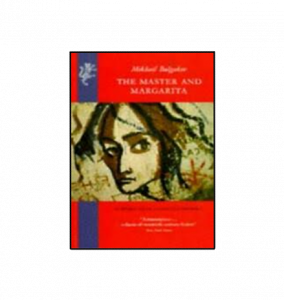 And so, over two weekends in November (05-08 and 14-15) we participated in the
And so, over two weekends in November (05-08 and 14-15) we participated in the 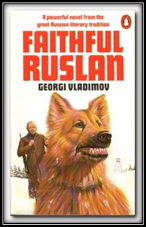 Her microhistory spotlighted some of Glenny’s translatorial dispositions (as gleaned
Her microhistory spotlighted some of Glenny’s translatorial dispositions (as gleaned 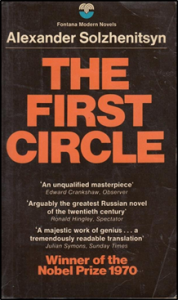 from a range of primary material: letters, reviews, articles, notebooks spanning decades) and emphasised some translators’ natural inclinations towards the role of ‘translator-humanitarian’, which Glenny assumed later in his career by advocating for struggling living authors (Vladimov, for example, in the months preceding his ultimate defection), and for deceased authors denied full literary recognition (Bulgakov).
from a range of primary material: letters, reviews, articles, notebooks spanning decades) and emphasised some translators’ natural inclinations towards the role of ‘translator-humanitarian’, which Glenny assumed later in his career by advocating for struggling living authors (Vladimov, for example, in the months preceding his ultimate defection), and for deceased authors denied full literary recognition (Bulgakov).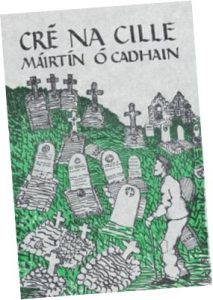
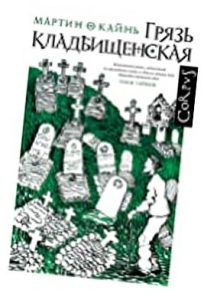 At midday British time on Saturday 7th (early morning for some in the US), RusTrans Principal Investigator Muireann Maguire participated in and chaired her panel, ‘Literary Translation from Russian in a Global Context’. This panel united three papers: Muireann’s ‘Houses of the Dead: Dostoevsky in Irish Literature’, Elizabeth Geballe’s ‘Scandalous Homage: E.-M. de Vogüé’s ‘Translation’ of Dostoevsky’, and Lana Soglasnova’s ‘One-poem Multilingual Translations: A Multidisciplinary Perspective’. Acting as co-discussant (with Dr Jinyi Chu), Cathy used her slot to draw parallels from all three papers with Pascale Casanova’s titular concept of the World Republic of Letters. Casanova’s research tracks the global ebb and flow of national literatures. Muireann’s, Elizabeth’s, and Lana’s papers each spoke to some aspect – or incarnation – of the emergence and disappearance of national literatures in translation. Death, an overt literary theme in both Elizabeth’s and Muireann’s papers, also served as a metaphor for translation. Elizabeth described how the French scholar Eugène-Melchior de Vogüé demanded a literary re-naissance for moribund French realism specifically through translations of Russian literature. Muireann spoke about Irish novelist’s Máirtín O Cadhain’s homage to Dostoevsky in his 1949 masterpiece Graveyard Clay, which owed its genesis, as she argued, to The House of the Dead, a text very much alive in translation. And yet, unlike its transnational exemplar, O Cadhain’s novel itself has risked literary death because it is written in a localized (and now almost extinct) dialect of Irish, and was not translated into any
At midday British time on Saturday 7th (early morning for some in the US), RusTrans Principal Investigator Muireann Maguire participated in and chaired her panel, ‘Literary Translation from Russian in a Global Context’. This panel united three papers: Muireann’s ‘Houses of the Dead: Dostoevsky in Irish Literature’, Elizabeth Geballe’s ‘Scandalous Homage: E.-M. de Vogüé’s ‘Translation’ of Dostoevsky’, and Lana Soglasnova’s ‘One-poem Multilingual Translations: A Multidisciplinary Perspective’. Acting as co-discussant (with Dr Jinyi Chu), Cathy used her slot to draw parallels from all three papers with Pascale Casanova’s titular concept of the World Republic of Letters. Casanova’s research tracks the global ebb and flow of national literatures. Muireann’s, Elizabeth’s, and Lana’s papers each spoke to some aspect – or incarnation – of the emergence and disappearance of national literatures in translation. Death, an overt literary theme in both Elizabeth’s and Muireann’s papers, also served as a metaphor for translation. Elizabeth described how the French scholar Eugène-Melchior de Vogüé demanded a literary re-naissance for moribund French realism specifically through translations of Russian literature. Muireann spoke about Irish novelist’s Máirtín O Cadhain’s homage to Dostoevsky in his 1949 masterpiece Graveyard Clay, which owed its genesis, as she argued, to The House of the Dead, a text very much alive in translation. And yet, unlike its transnational exemplar, O Cadhain’s novel itself has risked literary death because it is written in a localized (and now almost extinct) dialect of Irish, and was not translated into any 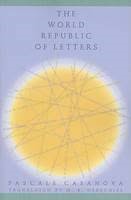 international languages until the twenty-first century. The common theme binding all the anthologies explored in Lana’s paper is the resuscitation of dead poets, short-story writers and minority ethnic languages, projecting them either internally or externally into dozens of world languages as an act of outward-looking advertisement. The rationale behind such large-scale projects recalls Johann Herder’s 18th century claim, cited by Casanova, that ‘each epoch and nation possesses its own special character’ (2007, p. 76). One way to challenge unequal distribution of power in the emerging literary world is by creating a repository of national literary wealth which springs from ‘a country’s entire cultural and historical development’ (ibid.). It seems this might be the key skopos behind these anthologies, which we were told require significant investment, but also have the capacity to act as a vehicle for healing, by allowing the State to atone for historical instances of national domination of peoples, literatures, and languages.
international languages until the twenty-first century. The common theme binding all the anthologies explored in Lana’s paper is the resuscitation of dead poets, short-story writers and minority ethnic languages, projecting them either internally or externally into dozens of world languages as an act of outward-looking advertisement. The rationale behind such large-scale projects recalls Johann Herder’s 18th century claim, cited by Casanova, that ‘each epoch and nation possesses its own special character’ (2007, p. 76). One way to challenge unequal distribution of power in the emerging literary world is by creating a repository of national literary wealth which springs from ‘a country’s entire cultural and historical development’ (ibid.). It seems this might be the key skopos behind these anthologies, which we were told require significant investment, but also have the capacity to act as a vehicle for healing, by allowing the State to atone for historical instances of national domination of peoples, literatures, and languages.




